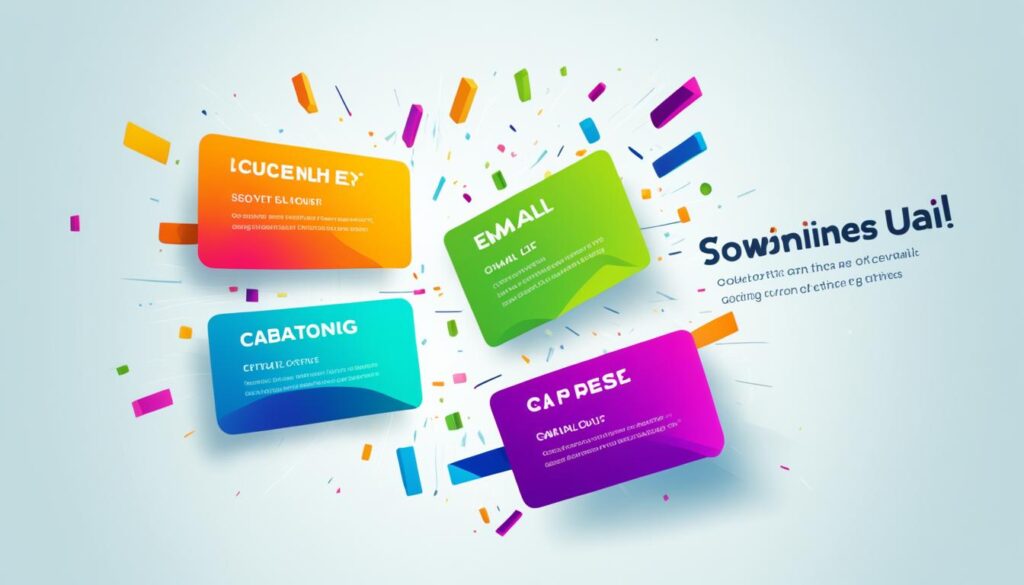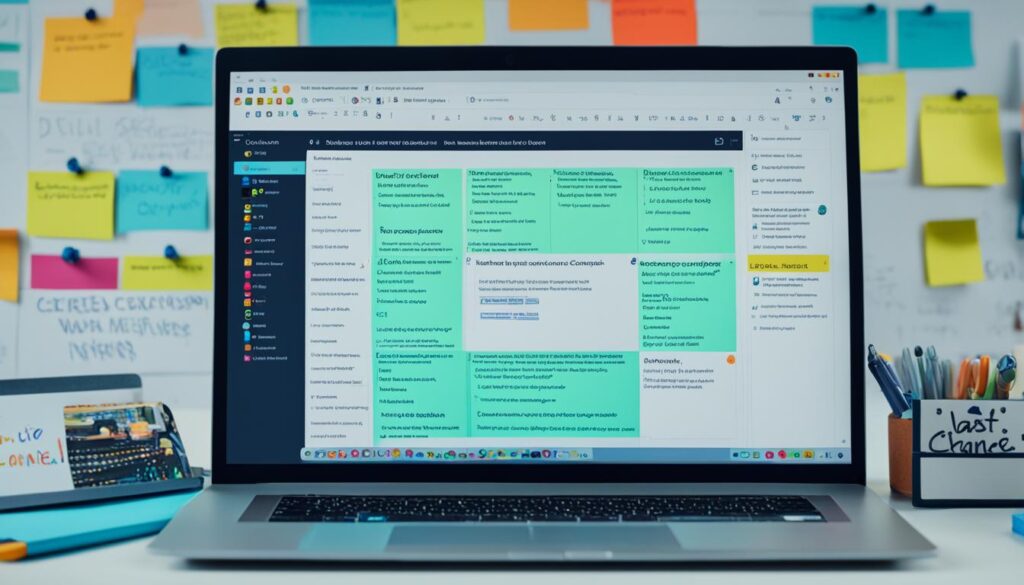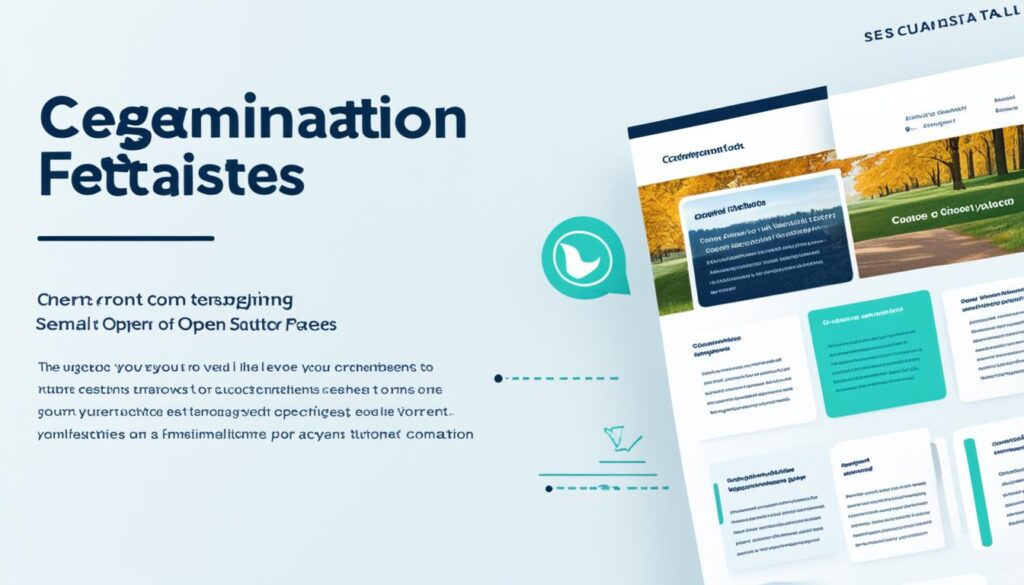Physical Address
304 North Cardinal St.
Dorchester Center, MA 02124
Physical Address
304 North Cardinal St.
Dorchester Center, MA 02124

Harness the power of email marketing to boost your course launches. Get expert tips on building anticipation, nurturing leads, and driving conversions through strategic email campaigns.
Email marketing has become key for online education businesses. It helps them boost student numbers, earn more money, and make strong student connections. Today, lots of people turn to the internet for learning. But, reaching out to them is not easy. That’s where email marketing shines, with 87% of companies saying it’s vital for their success. 64% of small businesses are already using it. For those in online education, email marketing brings many benefits. These include being seen more, gaining trust, building better relationships with students, improving credibility and cutting costs. It also leads to keeping more students and making campaigns work better.
Email marketing is great for reaching students directly. It offers regular updates and promotions. This can lead to word-of-mouth marketing through existing networks. Plus, by sending personalized messages that fit each person’s interests, email marketing helps build trust. It also makes it more likely that students will sign up for courses.
Email marketing lets course creators speak directly to students. They can send messages that really matter to them. By sorting the email list by who the students are and what they like, marketers can send content that’s just right for them. This helps more students decide to enroll in courses.
Personalized emails with success stories and useful tips make students and potential students feel like they’re part of a community. This makes them more interested and trusting. The steady flow of emails can also get them excited about new courses. It guides people towards signing up.
Email marketing can really make a difference by being personal. It allows you to send messages that are just what someone needs to hear. This kind of marketing can get more students to sign up for courses. It does this by making the enrollment process smoother and more appealing.
Email marketing is a key strategy for those offering online courses. It comes with several benefits that can hugely affect course launch success. By using email marketing benefits, you can better reach your audience. This, in turn, helps build audience engagement and relationships, improving online course promotion and enrollment.
It boosts the visibility and interest in your online courses. This is important because it lets you reach potential students directly. Almost 84.3% of people check their emails daily. This makes email marketing a powerful way to stay in touch with your audience and keep them interested.
Personalized communication based on what your audience likes can make people trust you more. By sending content that’s relevant and shows your knowledge, you build trust. This trust makes people more likely to join your courses. Doing this shows you are an expert. It also helps with online course promotion.
Email marketing helps create a community around your courses. Sending emails with stories, tips, and useful info makes your audience trust you. It helps both current and potential students feel connected. This can boost course enrollment and lead to ongoing loyalty to your brand.
Overall, email marketing is a great way for online course sellers to improve how they promote themselves, gain trust, and build connections with their audience. The result is often a successful launch and better promotion of their online courses later on.

Key to success in email marketing is a solid contact list. As an educator, your network and gathered email addresses are a goldmine for reaching potential students. Always include an opt-out choice in your emails for clear privacy rules.
Your network of professionals, past students, and peers is a great start for online course promotion. Invite these individuals to subscribe to your list. They already know and value your expertise.
Boost email sign-ups with rewards like downloadable resources or exclusive content. These are known as lead magnets and they help you get more contacts. They might include items like PDFs, eBooks, or mini-courses.
Setting a waitlist for a course can also bring in potential buyers, called “hot leads.” Use pop-up forms on your website to catch your visitors’ attention with rewards like discounts or free webinars. Valuable incentives and strategic website tools are great for building your email list.
Want people to check out your course? It all starts with the email subject lines. Make them catchy to grab attention and spark curiosity. Don’t forget about the email preview text, though. It’s a sneak peek of what’s inside.
Did you know, almost half of email readers open an email because of its subject line? But many think spam comes from boring ones. So, use subject lines wisely. Words like “urgent” add urgency, while fun lines or those making you look good can work wonders.
Deals in your subject line can get more clicks. But, be smart about it. Don’t give away too much. A balance will keep the excitement. Optimizing your subject lines is key for email success, especially for online courses.

Showing off your expertise in your emails is key. It makes people want to read what you send. Plus, it positions you as an expert in your field. It might just mean more people open and read your emails. Use stories and proof from others to make your emails real and trustworthy. This can get more people to think about taking your online courses.
Being seen as a leader through your emails helps a lot. Share details that show you know your stuff. It’s a great way to build trust. When your readers see you as a go-to source, they’re more likely to take your online courses.
When you share stories or proof in your emails, they become stronger. These stories can really touch your readers. They might see themselves in these stories. Don’t forget about testimonials or stories from happy learners. They add even more credibility to your online courses.
Email marketing is crucial for promoting online courses effectively. It helps from the start, building an email list, to sending focused messages. Generating interest is vital, and keeping emails interesting with catchy subject lines is a must.
To get people interested, your emails must be captivating. Make sure your subject lines grab attention. Crafting emails that show your course’s benefits will make potential students want to know more.
By sharing what makes your course valuable, you can encourage enrollment. Address any doubts or questions people might have. Offering helpful information tailored to their needs guides them towards signing up.
Personalizing your emails makes a big difference. It helps your audience see the course as just what they need. By segmenting your email list and customizing messages, you boost how personal and impactful your emails are.

Writing emails to promote online courses needs special steps to keep students interested. A catchy subject line is key as it affects if your email is opened. It should be short, make people want to know more, and match your course’s aim.
The preview text is like a sneak peek. Try out different lengths and be creative to draw attention. Personalizing beyond using someone’s name is smart now. Adding emojis to subject lines can also help. Use A/B testing to pick the best subject lines.
Keep your email’s content easy to follow. Use headings, bullet points, and share stories from happy students. It makes your email more interesting and convincing. Make sure your email looks good on both computers and phones.
Make sure your emails look and feel like your course. This builds recognition and leaves a strong impression. Use bright colors for important links and add beautiful pictures. This helps your message hit home and connect with readers.

Segmenting your email contacts helps you better personalize your messages. You group subscribers by age, income, or education. This way, each group gets emails that match their needs. Your emails become more engaging and can lead to more people clicking and joining your courses.
Demographic segmentation groups people by age, gender, or income. It allows you to send messages that fit each group. For example, you might send one set of emails to young professionals and another to retirees interested in learning new things.
Interest and behavior-based segmentation goes beyond demographics. It looks at what your audience does online. This lets you personalize your emails based on their interests. Such personalization can make your emails more relevant. And this can lead to more opens, clicks, and course sign-ups.
| Segmentation Approach | Key Factors | Benefits |
|---|---|---|
| Demographic Segmentation | Age, Gender, Income, Education, Occupation | Personalized Content, Improved Relevance |
| Interest and Behavior-Based Segmentation | Browsing Behavior, Engagement Levels, Expressed Preferences | Hyper-Personalized Messaging, Increased Conversions |
If you combine demographic and interest-based strategies, your email campaigns can really hit home. They can make people more interested in what you offer, leading to more interactions and course sign-ups.
Seeing how readers interact with your emails teaches you a lot. It helps refine your strategy for sending emails. By keeping an eye on who opens, clicks, and buys from your emails, you can do better. You’ll learn what people like and adjust your messages to match.
It’s key to watch open, click, and buy rates to see how well your emails do. These numbers show how interested your audience is. This info guides you to make your emails more appealing. You can tweak your messages and strategy to suit your audience better.
A/B testing means trying out different email parts, like subject lines or content. It helps find what works best, making your emails better over time. This ensures your emails stay effective in promoting your online courses. By always checking and updating your email strategies, you’ll bring in more students to your courses.